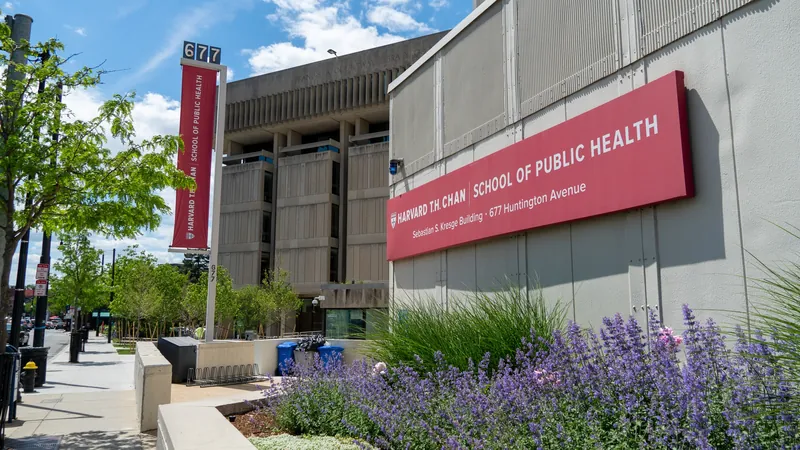
Shocking Harvard Study Reveals Deforestation's Role in Rising Malaria Cases in the Amazon!
2024-10-30
Author: Wei
Introduction
In a groundbreaking study published on October 21, researchers at the Harvard School of Public Health have unveiled alarming findings linking ecological changes in the Brazilian Amazon to an unsettling rise in malaria transmission rates.
Study Overview
The team meticulously analyzed data spanning from 2003 to 2022, shedding light on the intricate relationship between deforestation and the spread of malaria. By compiling monthly data from the Brazilian Ministry of Health and mapping deforestation levels through MapBiomas, the researchers were able to identify previously overlooked seasonal fluctuations in malaria transmission.
Malaria in Brazil
Malaria, a potentially deadly disease caused by parasites and transmitted through mosquito bites, has been nearly eradicated in several countries. However, Brazil remains one of the nations where the threat looms large. In 2022 alone, approximately 42.5 million individuals were reported to be at risk, with a staggering 129,000 confirmed cases of the disease.
Researcher's Insights
Maria C. de Castro, the study’s lead author and chair of the Department of Global Health and Population at Harvard, emphasized the existing gaps in current malaria research. "Unfortunately, we have a lot of garbage published," Castro stated candidly, critiquing earlier studies that primarily analyzed annual data while neglecting the seasonality of malaria outbreaks. "The disease peaks during certain months of the year," she added, underlining the critical need for a more nuanced understanding.
Policy Implications
The researchers aim to utilize their findings to influence public health policies aimed at eradicating malaria in Brazil. Nicholas J. Arisco, a doctoral student involved in the research, expressed the team's commitment to making an impact: "Our work is directly trying to inform policy and enhance the effectiveness of malaria elimination programs across the country."
Importance of Collaboration
Oladimeji E. Mudele, a postdoctoral fellow at HSPH, echoed the significance of aligning scientific findings with governmental policy initiatives. "Establishing crucial collaborations with governmental and policy agencies in Brazil is paramount for the success of such studies," he stated.
Challenges Ahead
Yet, the journey from scientific discovery to policy application is fraught with challenges. Castro noted that eradicating malaria is inherently political and requires dedicated political will and cross-sector cooperation. "You want to assume there is political buy-in, but often, good scientific intentions struggle to penetrate the complex policy landscape," Mudele added.
Conclusion
Despite these hurdles, the researchers remain hopeful that their study will enhance public awareness regarding the multifaceted strategies needed to combat malaria in Brazil. "Awareness is the first step," Mudele emphasized. "When studies bring these issues into the public eye, it allows for a greater understanding of the real impact involved, pushing for essential changes."
Call to Action
As this study demonstrates, the connection between environmental changes and public health risks like malaria cannot be ignored. Urgent action is needed to address these challenges and protect millions at risk. Will this new research be the catalyst for transformative public health policies in Brazil? Only time will tell.



 Brasil (PT)
Brasil (PT)
 Canada (EN)
Canada (EN)
 Chile (ES)
Chile (ES)
 España (ES)
España (ES)
 France (FR)
France (FR)
 Hong Kong (EN)
Hong Kong (EN)
 Italia (IT)
Italia (IT)
 日本 (JA)
日本 (JA)
 Magyarország (HU)
Magyarország (HU)
 Norge (NO)
Norge (NO)
 Polska (PL)
Polska (PL)
 Schweiz (DE)
Schweiz (DE)
 Singapore (EN)
Singapore (EN)
 Sverige (SV)
Sverige (SV)
 Suomi (FI)
Suomi (FI)
 Türkiye (TR)
Türkiye (TR)